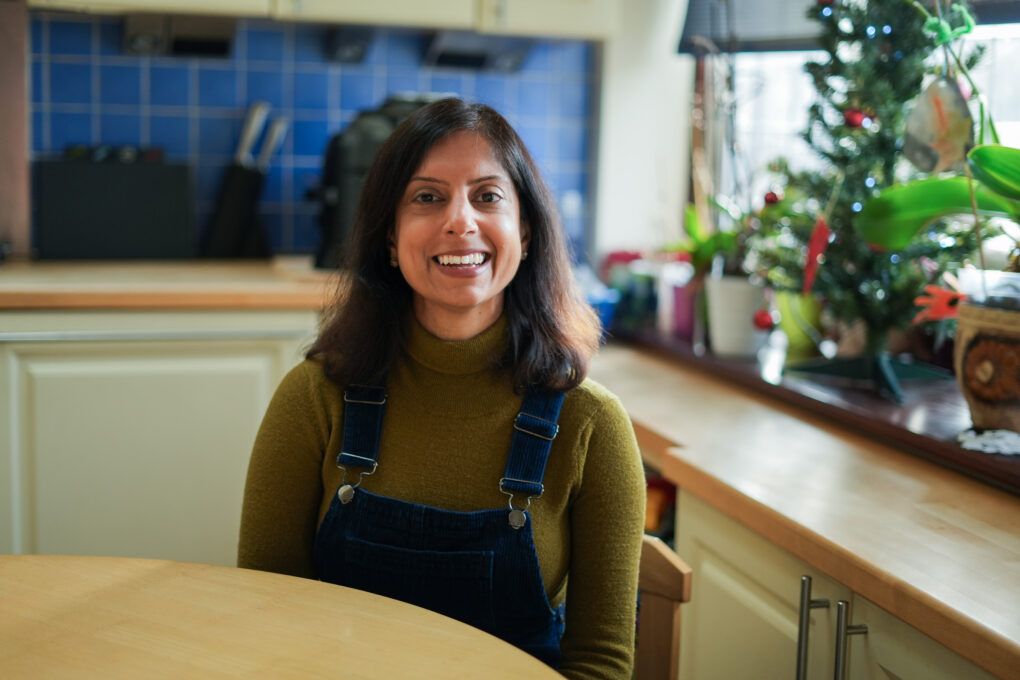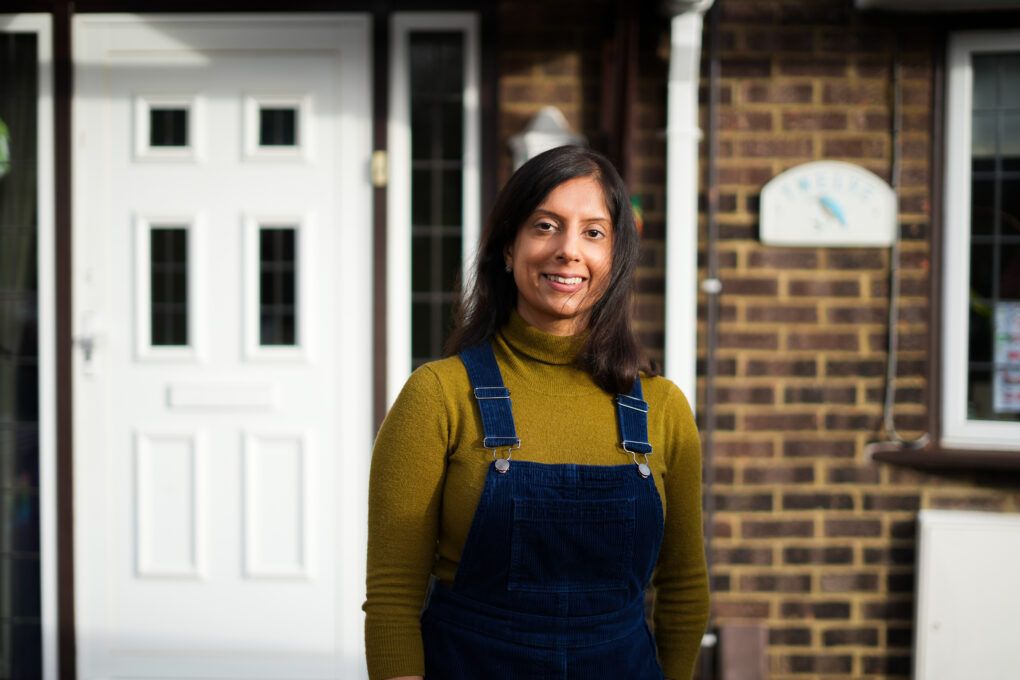‘I was lucky to survive leukaemia. I hope we can reduce health inequalities for my son’s generation’

2010 is a year Farrah Somani will never forget – and one that played a huge part in her decision to join Our Future Health.
She was 30 years old and had just bought her first flat. “I was working as a GP, seeing friends and family at the weekends, enjoying having my own space and starting to think about settling down,” she says.
She remembers feeling tired at the time, but she assumed it was just a natural consequence of her busy life. However, as the weeks passed in her new home, Farrah was experiencing symptoms she couldn’t ignore. The tiredness she was feeling just wouldn’t go away – plus she wasn’t feeling as hungry as normal, and was starting to lose weight.
Farrah went to her GP thinking she might have a stomach issue, but test results revealed the truth was worse than she’d imagined. Six months after moving into her flat, Farrah was told she had leukaemia – also known as blood cancer.
‘A walking bomb’
Leukaemia affects the blood cells (known as stem cells) in a patient’s bone marrow, which are part of the body’s immune system. It compromises their ability to fight off other diseases, which is why patients sometimes die from infections they contract. Leukaemia is the UK’s third biggest cancer killer, with 16,000 people dying from the disease every year.
Just a day after her diagnosis, Farrah saw a blood specialist. “It all happened very quickly,” she recalls. “I was basically a walking bomb, going round with a very poorly immune system. The prognosis was not good.”
Her treatment started five days later and lasted for months. It began with a course of chemoradiation – chemotherapy followed by radiotherapy – to kill off Farrah’s ‘bad’ immune cells, followed by a stem cell transplant to inject healthy new cells into her body.
“I was one of the lucky ones, because my sister was a donor match,” says Farrah. “Many people aren’t so fortunate. There’s a shortage of people aged between 16 and 40 who are from minority ethnicities on the UK Stem Cell Register. Finding a stem cell match is against the odds.”
Farrah’s course of treatment was intense. For months, her immune system was non-existent, which meant she had to spend long periods in isolation. Gradually, her immune system responded to her new stem cells and she started to grow healthy blood cells again.
A year after her diagnosis, Farrah was able to return to work. Three months later, she was back to working full time again as a GP at a local practice.

‘With Our Future Health, we can prevent disease’
Today, Farrah is cancer-free, living in Hitchin with her husband and 6-year-old son. She says the memory of her blood cancer experience motivated her to take part in Our Future Health.
“As a leukaemia survivor, I’d like to find out more about what causes it in the first place and see more targeted treatments for the disease. It would be so much better if we could find a way to treat leukaemia without damaging healthy cells and organs.”
“I’m taking part in Our Future Health because it has huge potential. The size of it and the type of data that’s being gathered will be transformative. It can lead to earlier detection of leukaemia – and hopefully better treatment too.”
Dr. Michael Cook, Executive Director of Science at Our Future Health, says that Farrah’s hope is well placed. “The scale of our programme will enable discovery and translational research into rarer conditions, like leukaemia, within a single prospective cohort,” he explains. “This provides multiple advantages over the alternative of stitching multiple different cohort studies together.
“In addition, we have worked with NHS Blood and Transplant to ensure that our custom genotype array includes a broad assessment of genetic variants for blood type prediction. It will provide huge gains for research and potential for donor-recipient transplant matching.”
‘Every individual is important’
Farrah says she’s also keen to support our programme due to her professional experience as a doctor. “I’m excited by the diversity of data that Our Future Health will give researchers. It will lead to doctors like me using more accurate tools to prevent and detect disease.
She says Our Future Health could bring about a change in healthcare, so doctors are able to intervene earlier, before diseases have had a chance to fully establish themselves in a patient’s body. “Working in the healthcare system at the moment feels very much like firefighting. It would be lovely to get to a point where we’re dealing with more health promotion and prevention.”
“It might feel like this programme isn’t for you and it’s not relevant for you right now, but every individual is important. Everyone counts and if we can get individuals from every walk of life, we will get better results and better outcomes for everyone.”
To find out more about leukaemia and other blood cancers, visit Blood Cancer UK.
Blood Cancer UK is an affiliate charity of Our Future Health.

Let’s prevent disease together
By volunteering for Our Future Health, you can help health researchers discover new ways to prevent, detect and treat common conditions such as diabetes, cancer, heart disease, stroke and Alzheimer’s.